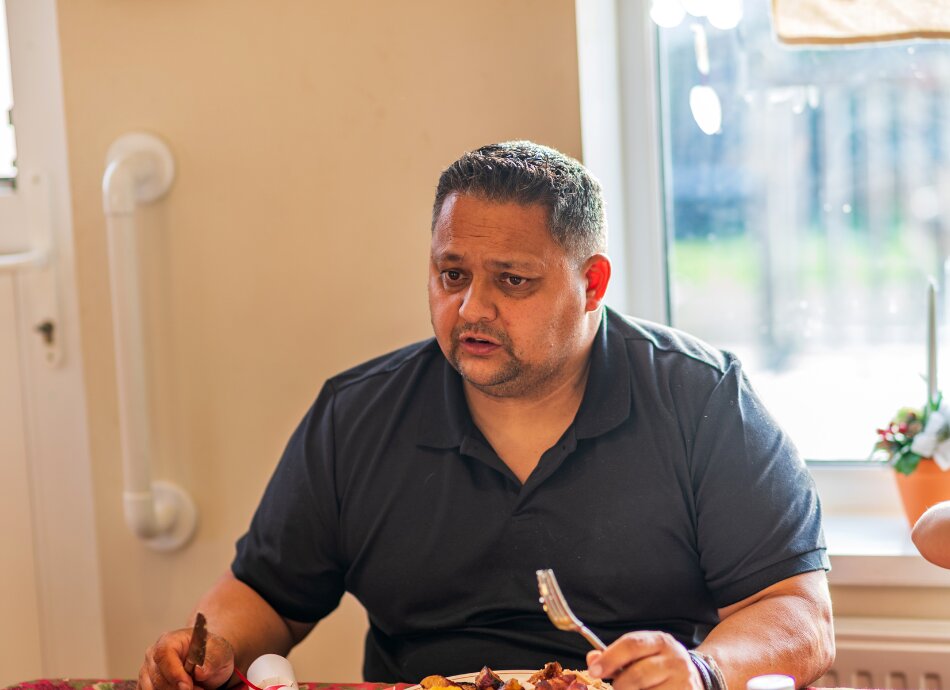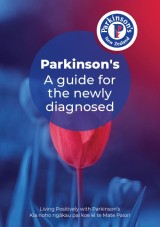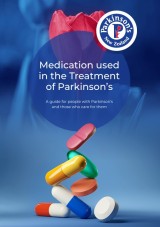If you're a frequent visitor to Healthify, why not share our site with a friend? Don't forget you can also browse Healthify without using your phone data.
Parkinson's overview | Mate pākenetana
Also known as Parkinson's disease
Key points about Parkinson's disease
- Parkinson’s is one of the most common neurological (brain and nervous system) conditions. It affects movement and coordination.
- Many people develop it between the ages of 55 to 65 years but it most often starts when people are in their 70s or 80s. It gets worse slowly over about 15 years.
- The first sign of Parkinson’s is often a shaking hand (tremor) or slowness of movement.
- There's no cure for Parkinson's yet, but symptoms can be treated with lifestyle changes, medicines and surgery.
- It’s important that anyone with Parkinson’s and their family/whānau get information about the condition and support to manage it.

Parkinson’s is a neurological condition that affects your brain and nervous system. It’s progressive, which means it gradually gets worse. The condition develops slowly as nerves in a part of your brain called the substantia nigra slowly degenerate.
Parkinson’s has:
- motor symptoms including difficulty with control of coordination, movement and mobility
- non-motor symptoms including changes to your senses, energy levels, mood, anxiety and cognitive abilities such as planning and decision making.
Parkinson’s is one of the most common degenerative neurological diseases. About 1 in 500 people in Aotearoa New Zealand have Parkinson’s. It’s more common in Pākehā/NZ Europeans. It frequently starts between the ages of 55 and 65. By the age of 80, about 2 in 100 people have Parkinson’s. It’s slightly more common in men than women.
Most people have a slow progression, but others can have symptoms which progress more quickly. Of people diagnosed with Parkinson’s, about 1 in 20 are younger than 40 years and for them, genetics may cause or contribute to the development of the condition.
Parkinson’s is not contagious and can't be spread from one person to another. With good medical treatment, it generally has only a minor effect on life expectancy.
Video: What is Parkinson's?
(Parkinson's UK, 2017)
Parkinson’s is caused by a loss of nerve cells in the part of the brain called the substantia nigra. These nerve cells are responsible for producing a chemical called dopamine. Dopamine acts as a messenger between the parts of the brain and nervous system that help control and co-ordinate body movements.
With dopamine, you can have quick, well-coordinated movement. When dopamine levels fall, movements become slow and awkward.
It's not known why this happens in some people. Researchers are looking into possible causes, including genetic changes and environmental factors, such as toxic chemicals.
There is a small increase in the chance of having Parkinson’s if someone in your family/whānau has it.
Stages
Parkinson’s has early and later stages.
- Early-stage – mild symptoms or disability.
- Later-stage – motor symptoms have further developed despite medicines and there is more limitation in day-to-day life.
Symptoms
There are 3 main symptoms of Parkinson's disease that affect your physical movement (motor symptoms):
Tremor
- About 70% of people with Parkinson’s have a tremor.
- The tremor involves shaking, particularly when resting. It often occurs in 1 hand or arm rather than both (at least to start with).
Stiffness
- Rigid muscles can make it harder to turn over in bed, get out of a chair, do up buttons.
- Stiffness can also:
- affect your posture and balance
- lessen your facial expressions
- lead to aches in your muscles
- contribute to lower back pain.
Slowness of movement (also known as bradykinesia)
- It can be hard to start a movement, or it might take you longer to do a task.
- This can also affect repetitive movements, such as handwriting and getting dressed. You might notice your handwriting gets smaller.
You may also experience a range of other physical and mental symptoms (non-motor symptoms), such as:
- depression, anxiety or loss of interest in life
- disturbance of normal sleep
- extreme tiredness
- lack of sense of smell
- constipation
- trouble swallowing or speaking
- skin sensations and pain
- dizziness when getting up.
The main symptoms of Parkinson's are also the main symptoms of a number of conditions that are grouped together under the term parkinsonism.
Atypical Parkinsonism means neurological disorders that cause Parkinson’s-like movement problems, such as slow movement, stiffness and sometimes tremor but are different from Parkinson’s disease itself.
These conditions tend to progress faster than Parkinson’s, and people with them experience extra symptoms, such as falling over, dementia or hallucinations early in the condition, and faintness or urinary incontinence. People with atypical Parkinsonism also don’t respond as well to the usual Parkinson’s treatment.
If specialists see unusual symptoms and you don't respond well to medicines, they may start to question whether you have Parkinson's disease or atypical Parkinsonism.
Medicines which interfere with dopamine in your brain can cause Parkinson’s symptoms. Examples are metoclopramide and prochlorperazine (used for nausea) and medicines used for psychosis. If you have these side effects your medicines should be changed, and if you have Parkinson’s these medicines shouldn’t be used.
There are no tests that show that you have Parkinson's. Your GP or nurse practitioner will ask about your symptoms and medical history and will do a detailed physical examination.
They may also ask you to do some simple mental or physical tasks, such as moving or walking around.
It can be hard to diagnose Parkinson’s in the early stages because symptoms are usually mild at first and can be caused by other conditions. If your healthcare provider thinks you might have Parkinson's, they will refer you to a specialist. This will usually be a neurologist (a specialist in conditions affecting the brain and nervous system) or a geriatrician (a specialist in conditions affecting older adults).
- Keeping moving is vitally important to manage your symptoms, to keep you functioning and to continue enjoying your life: It’s important that the type of exercise is tailored for people with Parkinson’s. Parkinson’s New Zealand can help with a specific exercise programme(external link). Search the internet – private gyms also offer Parkinson’s specific exercise classes. Read more about exercise for people with Parkinson's.
- Find out about your brain: Take a look at the Patient UK page on Parkinson’s(external link) or visit the New Zealand Brain Research Institute(external link) website. Meet with an educator through Parkinson’s New Zealand(external link).
- Get support: Living with a chronic health condition isn’t easy. Talk with friends or family, or with a mental health professional.
If you have mild symptoms of Parkinson’s, your healthcare provider might not recommend medicines and instead focus on physiotherapy, occupational therapy and lifestyle improvements. Find out more in the treatment section below. As your symptoms progress, medicines will be prescribed for you.
Read more about living well with Parkinson’s.
Apps reviewed by Healthify
You may find it useful to look at some Parkinson's apps, physiotherapy and exercise apps, swallowing difficulty apps, self-management apps and healthy ageing and wellness apps.
Although there's no cure for Parkinson's yet, treatments are available to help reduce symptoms and maintain your quality of life for as long as possible. These include:
- supportive therapies, such as physiotherapy and occupational therapy
- medicines
- deep brain stimulation (DBS).
Supportive therapies
There are several therapies that can make living with Parkinson's easier and help you deal with your symptoms on a day-to-day basis. These include the following:
- Physiotherapy to relieve muscle stiffness and joint pain through movement (manipulation) and exercise.
- Occupational therapy to work out practical solutions to difficulties in your everyday life, such as dressing yourself or getting to the local shops.
- Speech and language therapy to help with swallowing difficulties and problems with speech.
- Diet advice, as making dietary changes can help improve some symptoms. These changes can include:
- increasing the amount of fibre in your diet and making sure you're drinking enough fluid to reduce constipation
- increasing the amount of salt in your diet and eating small, frequent meals to avoid problems with low blood pressure, such as dizziness when you stand up quickly
- making changes to your diet to avoid medicine side effects unintentional weight loss.
Medicines
Medicines don't prevent Parkinson's but they aim to improve your daily functioning. Medicines will often be started by your specialist when you're diagnosed, to relieve symptoms. Otherwise they might be delayed until symptoms interfere with daily life or work.
Everybody's experience of Parkinson's is different and your healthcare team will work with you to find the best treatments for your particular symptoms. Depending on your symptoms and how you respond to medicines, you may need to try a combination of medicines, and your medicines may change over time as your symptoms change.
There are many different types of medicines for Parkinson's and most of them work by topping up or mimicking (copying) the effects of dopamine.
Read about medicines for Parkinson's, including tips for taking them and medicines to avoid. Your healthcare provider will also prescribe medicines and other treatments as necessary to help you manage other symptoms such as depression, pain or gut problems.
Deep brain stimulation (DBS)
DBS is a therapy aimed at treating fluctuating motor symptoms for some people if medicines aren't working smoothly.
- DBS stimulates a specific part of your brain with mild electrical pulses sent from a device in your chest through wires under your skin.
- In Aotearoa New Zealand a limited number of people receive DBS treatment each year. This is because it's targeted at the most suitable candidates and is not widely available. Read more about deep brain stimulation(external link).
Parkinson’s disease always progresses over time, but how far and how fast this happens is very different for different people. Most people are able to work and take part in all the activities they enjoy for many years without serious disability.
As your Parkinson’s progresses there are many strategies and supports to help you live your live well. Read more about living well with Parkinson’s disease.
In time it may affect your ability to drive safely. Talk to your healthcare provider about ways to stay independent. Read more about coping without a car.
Video: Moving forwards after a Parkinson's diagnosis – Shafaq's story (2:39 mins)
If you have been diagnosed with Parkinson's, it's important that you get support for yourself. You may also be entitled to financial support. Find out more about support for living with Parkinson's.
Resources(external link) Parkinson’s New Zealand
Resources for carers(external link) Parkinson's New Zealand
Parkinson's disease(external link) Better Health Australia, 2022
Brochures
Parkinson's – a guide for the newly diagnosed(external link) Parkinson's New Zealand, 2022
Getting the most out of your Parkinson's medicines [PDF, 11 MB] University of Auckland, People With Parkinson's Inc. & Waitemata DHB, NZ
Apps
Parkinson's apps
Physiotherapy and exercise apps
Swallowing difficulty apps
Self-management apps
Healthy ageing and wellness apps
References
- What is Parkinson’s?(external link) Parkinson’s New Zealand
- Parkinson disease(external link) Community HealthPathways, Canterbury, NZ, 2024
- Parkinson’s disease(external link) Patient, UK, 2023
- Parkinson’s Foundation(external link) US, 2018
- Parkinson's disease(external link) NHS, UK, 2022
- Prevalence and Incidence of Parkinson’s in New Zealand(external link) New Zealand Brain Research Institute, 2025
- Diagnosis and management of Parkinson’s disease(external link) BPAC, NZ, 2007
See our page Parkinson's for healthcare providers
Brochures

Parkinson's – a guide for the newly diagnosed
Parkinson's New Zealand

Medication used in the treatment of Parkinson's
Parkinson's New Zealand

Parkinson's New Zealand
Credits: Healthify editorial team. Healthify is brought to you by Health Navigator Charitable Trust.
Reviewed by: Prof. Tim Anderson, FRACP, Neurologist, New Zealand Brain Research Institute & Professor, University of Otago
Last reviewed:





